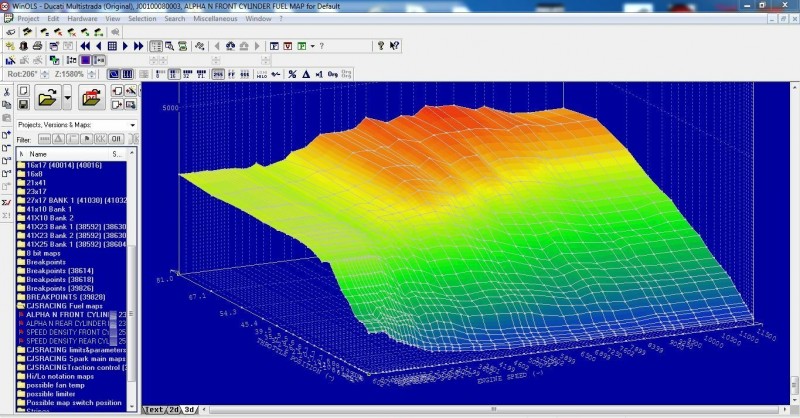High Quality Chiptuning File Service Dyno 24/7 Support
High Quality Chiptuning File Service Dyno 24/7 Support
Blog Article
Tuning files are essential in the world of automotive customization, offering drivers the opportunity to enhance their vehicle's performance, efficiency, and driving experience. This guide delves into what tuning files are, their benefits, how they work, and considerations for using them effectively.
What Are Tuning Files?

Tuning files are software modifications applied to a vehicle’s Engine Control Unit (ECU). The ECU serves as the brain of the car, managing functions such as fuel injection, ignition timing, and turbo boost pressure. By adjusting the parameters in the ECU, tuning files optimize the vehicle's performance to meet specific needs, whether for increased power, better fuel efficiency, or improved drivability.
Tuning files come in various forms, including:
- Performance Tunes: Focused on increasing horsepower and torque.
- Eco Tunes: Aim to improve fuel efficiency and reduce emissions.
- Custom Tunes: Tailored to the driver’s specific requirements and vehicle setup.
How Do Tuning Files Work?
Tuning files modify the data maps within the ECU. These maps dictate how the engine behaves under different conditions. For example:
- Fuel Maps: Control the air-to-fuel ratio.
- Ignition Maps: Determine the timing of the spark plug firing.
- Turbo Maps: Adjust turbocharger boost levels.
The process of creating or applying a tuning file typically involves the following steps:
- Reading the Original ECU File: A tuner extracts the current data from the vehicle’s ECU.
- Modifying the File: Using specialized software, the tuner adjusts the parameters to achieve the desired performance changes.
- Writing the Modified File: The updated file is uploaded back into the ECU.
Benefits of Using Tuning Files
- Enhanced Performance: Tuning files can significantly increase engine output, providing a noticeable boost in horsepower and torque.
- Improved Fuel Efficiency: Eco-focused tunes can optimize fuel consumption, leading to cost savings over time.
- Customized Driving Experience: Drivers can tailor their vehicle’s performance to suit their preferences, such as smoother acceleration or more responsive handling.
- Maximized Vehicle Potential: Tuning files unlock the full potential of a vehicle, which is often limited by manufacturer constraints.
Types of Vehicles Suitable for Tuning Files
While tuning files are often associated with performance cars, they are applicable to a wide range of vehicles, including:
- Passenger Cars: Both petrol and diesel engines can benefit.
- Commercial Vehicles: Improved fuel efficiency can lead to lower operational costs.
- Off-Road and Racing Vehicles: Enhanced power and responsiveness are critical for these applications.
Considerations When Using Tuning Files
- Professional Expertise: Tuning should be carried out by experienced professionals to ensure safety and effectiveness.
- Compatibility: Ensure the tuning file is compatible with the vehicle’s make, model, and ECU.
- Warranty Implications: Modifying the ECU may void the manufacturer’s warranty.
- Legal Compliance: Some jurisdictions have strict regulations regarding vehicle modifications. Verify that the tuning file adheres to local laws.
- Hardware Limitations: The vehicle’s hardware, such as the engine and transmission, must be capable of handling the increased performance to avoid damage.
Tools and Software for Tuning Files
Creating and applying tuning files requires specialized tools, including:
- ECU Readers/Writers: Devices like KESS or Alientech for extracting and uploading files.
- Tuning Software: Programs such as WinOLS or ECM Titanium for modifying ECU maps.
- Dyno Testing: A dynamometer is used to measure the vehicle’s performance and validate tuning results.
Risks and Challenges
While tuning files offer numerous benefits, there are potential risks:
- Engine Damage: Incorrect tuning can lead to overheating, knocking, or premature wear.
- Reduced Reliability: Aggressive tunes may strain engine components.
- Increased Emissions: Performance-focused tunes might result in higher exhaust emissions.
The Future of Tuning Files
The automotive industry is evolving, and tuning files are keeping pace with advancements in technology. Key trends include:
- Electric Vehicle (EV) Tuning: As EVs become more prevalent, tuners are exploring ways to enhance battery management systems and motor performance.
- AI-Driven Tuning: Artificial intelligence is being integrated into tuning software to automate and optimize adjustments more effectively.
- Cloud-Based Solutions: Remote tuning services are becoming increasingly popular, allowing files to be sent and applied over the internet.
- Sustainability Focus: Tuning files are being developed with an emphasis on reducing carbon footprints and promoting environmentally friendly driving.
Frequently Asked Questions
Q: Can tuning files be reversed?
A: Yes, the original ECU file can be reinstalled if the owner wishes to revert to the factory settings.
Q: How much does tuning cost?
A: The cost varies based on the vehicle, the type of tune, and the tuning professional. Prices typically range from $300 to $1,500.
Q: Is tuning safe for my car?
A: When performed by experienced professionals, tuning is generally safe. However, aggressive tunes can increase wear and tear on the engine and other components.
Conclusion
Tuning files are a powerful tool for optimizing vehicle performance and efficiency. By understanding their capabilities and limitations, drivers can make informed decisions to achieve their desired outcomes. Whether you’re seeking a thrilling boost in power or a more economical ride, tuning files offer a versatile solution tailored to your needs. Report this page